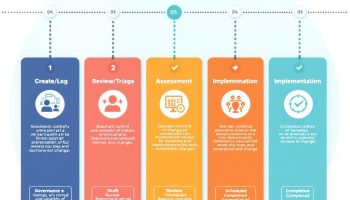
Understanding Project Management Tools and Techniques
Project management tools and techniques provide the essential infrastructure for successful project execution. These range from planning and scheduling resources to communication platforms, Agile methodologies, risk management frameworks, resource allocation systems, and structured methodologies. This comprehensive toolkit enables teams to plan, execute, monitor, and deliver projects efficiently in today’s complex business environment.
The Business Imperative for Project Management Resources
Project management tools and techniques have become essential for modern businesses facing growing project complexity and competitive pressures. Planning tools like Gantt charts make timeline visualization straightforward, while collaboration platforms ensure smooth information flow across distributed teams. Agile methodologies offer the flexibility needed to adapt to changing requirements, and risk management frameworks protect business goals from uncertainty. Effective resource management stops costly overallocation, while structured methodologies create consistent approaches that drive predictable outcomes and operational excellence. Together, these resources directly impact productivity, budget adherence, and business performance.
“`html
Discover 6 Types of Project Management Tools and Techniques: Optimize Your Workflow Today
In the ever-evolving landscape of project management, utilizing the right tools and techniques can significantly enhance your team’s efficiency and effectiveness. This section presents six essential types of project management tools and techniques, each serving a unique purpose to streamline various aspects of your projects. From powerful planning and scheduling applications to collaborative communication platforms, these tools are designed to address the diverse challenges faced throughout a project’s lifecycle. By exploring and implementing these techniques, you can improve resource allocation, enhance team collaboration, and mitigate risks. Read on to discover how these tools can empower your projects and help you achieve your goals more efficiently.
“`
“`html
1. Project Planning and Scheduling Tools
When exploring various types of project management tools and techniques, planning and scheduling tools stand at the forefront of essential resources. These platforms enable you to visualize project timelines, allocate resources efficiently, and establish clear milestones for your team to follow. Gantt charts offer a horizontal bar representation of your project schedule, showing dependencies between tasks and highlighting critical paths. PERT charts provide a network diagram approach, particularly valuable for complex project timelines with multiple dependencies.
Modern software solutions like Microsoft Project, Asana, and Monday.com have revolutionized project planning by offering intuitive interfaces and collaboration features. These tools help you track progress in real-time and make adjustments as needed. By implementing these scheduling tools, you can maintain better control over project timelines and ensure all team members understand their responsibilities and deadlines.
“`
2. Communication and Collaboration Platforms
When evaluating types of project management tools and techniques, communication platforms serve as the backbone for team coordination. These platforms enable seamless information sharing regardless of team location, creating virtual workspaces where project updates flow naturally.
Slack offers channel-based messaging that organizes conversations by topic, while Microsoft Teams integrates with Office 365 for document collaboration. Zoom provides video conferencing capabilities essential for remote teams needing face-to-face interaction. For more comprehensive project collaboration, Basecamp combines messaging, file sharing, and task management in one interface.
Project management dashboards visualize progress metrics and team performance in real-time, allowing you to:
- Track conversation threads and decision history
- Share files and documentation instantly
- Conduct virtual meetings with recording capabilities
- Integrate with other project management tools
- Enable real-time feedback and approvals
Using these collaboration platforms reduces email overload and creates transparency across your project team, ensuring everyone stays aligned on objectives and deadlines.
Expert Insight: Leverage communication and collaboration platforms like Slack, Microsoft Teams, or Zoom to enhance team coordination and transparency. These tools streamline information sharing, reduce email clutter, and enable real-time feedback, ensuring alignment on project objectives and deadlines. Choose the right platform to foster a productive virtual workspace.
3. Agile Project Management Techniques
Implementing the right types of project management tools and techniques can transform your delivery capabilities. Agile methodologies have revolutionized how teams approach complex projects by breaking them into manageable iterations.
Agile project management techniques focus on flexibility and continuous improvement. You’ll find these approaches particularly valuable when requirements frequently change or when you need to deliver value incrementally. The core philosophy emphasizes collaboration, adaptability, and customer satisfaction through regular delivery of working solutions.
Popular Agile frameworks include:
- Scrum methodology with defined roles (Scrum Master, Product Owner, Development Team) and ceremonies (Sprint Planning, Daily Stand-ups, Sprint Review)
- Kanban boards for visualizing workflow and limiting work-in-progress
- Sprint planning to define short-term goals and deliverables
- Daily stand-ups to ensure team alignment and remove obstacles
- Retrospectives to continuously improve processes
Tools like Jira, Trello, and Azure DevOps support these approaches by providing project collaboration features that enhance visibility and accountability. When implementing Agile techniques, you need to focus on both the tools and the mindset shift required for success.
Expert Insight: To succeed with Agile project management, embrace flexibility, collaboration, and continuous improvement. Utilize frameworks like Scrum or Kanban to manage workflows effectively, and leverage tools such as Jira or Trello for enhanced visibility. Remember, the key lies not just in the tools, but in fostering the right mindset within your team.
4. Risk Management Frameworks for Effective Project Oversight
Risk management frameworks are essential types of project management tools and techniques that help project teams proactively handle uncertainties. These frameworks provide structured approaches to identify, analyze, and respond to potential threats before they derail your project objectives.
When implementing risk management in your projects, you’ll typically follow a systematic process that includes risk identification, analysis, response planning, and monitoring. Risk response strategies form a critical component of these frameworks, allowing you to address each identified risk appropriately.
Common risk management tools include:
- Risk registers – Comprehensive documents that catalog identified risks, their probability, impact, and planned responses
- SWOT analysis – Evaluates strengths, weaknesses, opportunities, and threats facing your project
- Monte Carlo simulation – Statistical technique that models possible outcomes and their probability
- Risk breakdown structure – Hierarchical organization of potential risk sources
- Decision trees – Visual tools for evaluating different response options
Using these types of project management tools and techniques enables you to maintain control even when facing uncertainty. The most effective project managers integrate risk management throughout the project lifecycle rather than treating it as a one-time activity.
Expert Insight: To enhance project oversight, integrate risk management frameworks throughout the project lifecycle. Utilize tools like risk registers and Monte Carlo simulations for identifying and analyzing risks, and develop effective response strategies. Proactively addressing uncertainties ensures that potential threats are managed before they disrupt your project objectives.
5. Resource Management Systems
Effective types of project management tools and techniques must include robust resource management systems to ensure optimal project delivery. These systems help you allocate your team members, equipment, and materials efficiently across all project activities.
Resource management tools provide visibility into resource availability, helping you avoid both overallocation and underutilization. Modern workload management software allows you to visualize team capacity and make data-driven decisions about resource distribution. Many project managers implement capacity planning tools to forecast future resource needs and prevent bottlenecks.
Resource leveling techniques are particularly valuable when you need to smooth out resource demands across your project timeline. These techniques help you:
- Identify resource conflicts before they impact your schedule
- Balance workloads to prevent team burnout
- Prioritize critical path activities when resources are limited
- Track resource utilization rates to improve future planning
When implementing resource management systems, consider integrating them with your scheduling tools to enable automatic updates when resource availability changes. This integration creates a more responsive project environment that can adapt to shifting priorities.
Expert Insight: To enhance project delivery, utilize resource management systems for effective team and material allocation. These tools provide visibility into resource availability, allowing project managers to avoid overallocation and burnout while prioritizing critical tasks. Integrate them with scheduling tools for a responsive project environment that adapts to changing resource needs.
6. Project Management Methodologies
Project management methodologies provide structured frameworks that guide your project from start to finish. When selecting from the various types of project management tools and techniques, methodologies serve as the foundation for your overall approach.
Waterfall methodology follows a linear, sequential process where each phase must be completed before moving to the next. It works well for projects with clearly defined requirements and minimal expected changes.
PRINCE2 (Projects IN Controlled Environments) offers a process-based approach with defined principles, themes, and processes, making it ideal for large-scale projects requiring strict governance.
Six Sigma focuses on improving quality by identifying and removing defects and minimizing variability in processes. The most popular project management methodologies also include Agile, which enables iterative development and quick adaptability.
Critical Path Method (CPM) helps identify tasks that directly impact project completion time, while Lean project management concentrates on maximizing value while minimizing waste through continuous improvement.
Types of Project Management Tools and Techniques
Types of project management tools and techniques encompass six essential resources: planning and scheduling tools, communication platforms, Agile methodologies, risk management frameworks, resource management systems, and structured project methodologies. These comprehensive solutions provide the foundation for visualizing timelines, enhancing team coordination, adapting to changing requirements, managing uncertainties, allocating resources efficiently, and establishing consistent processes throughout project lifecycles.
These types of project management tools and techniques are indispensable for businesses seeking to maintain competitive advantage through improved project delivery and operational efficiency. By implementing planning tools like Gantt charts, collaboration platforms like Slack, Agile frameworks such as Scrum, risk management processes, resource allocation systems, and methodologies like Waterfall or PRINCE2, organizations can significantly reduce project failures, improve resource utilization, enhance team productivity, and ensure consistent delivery of business objectives within constraints.






